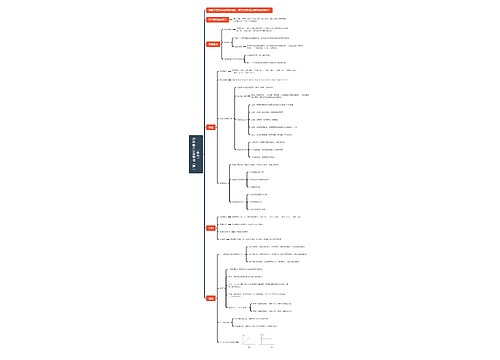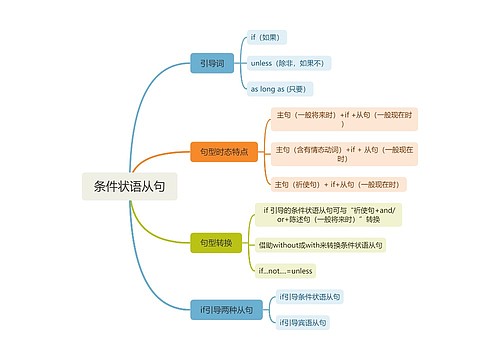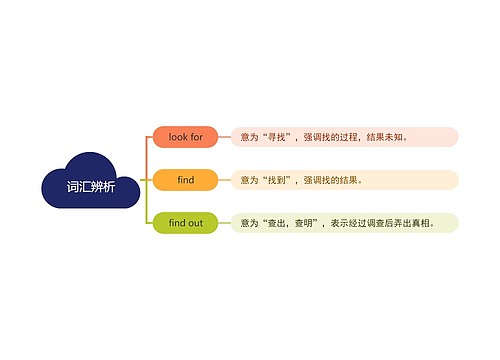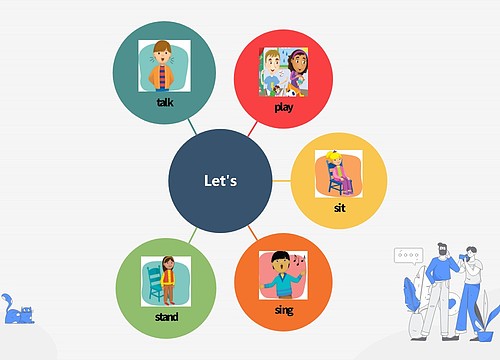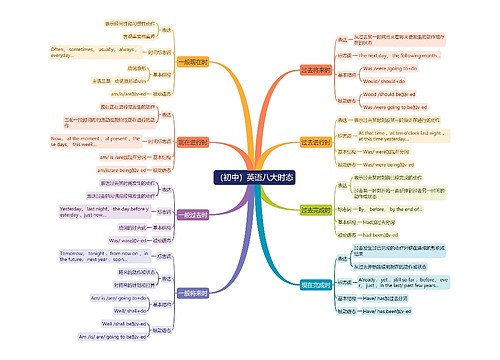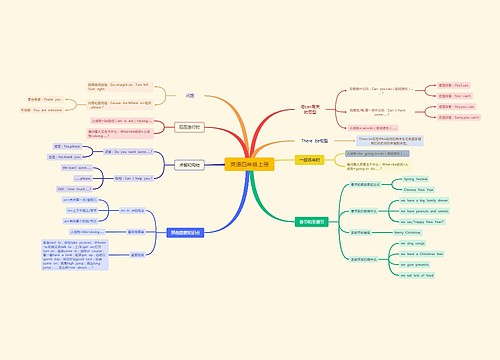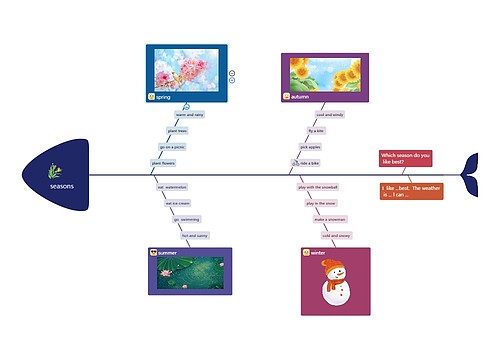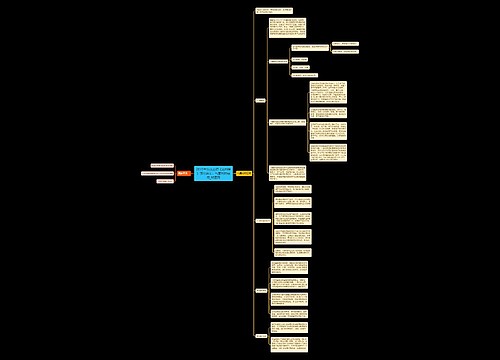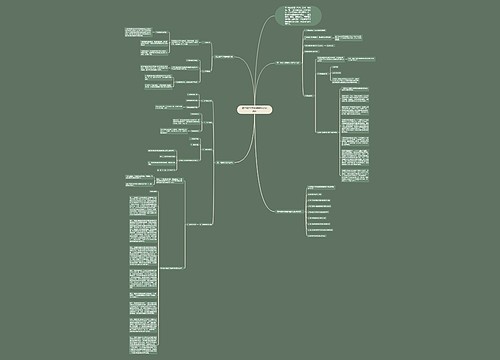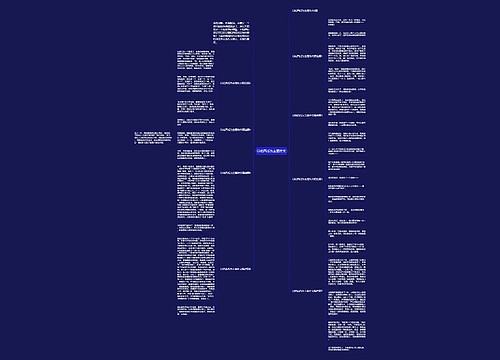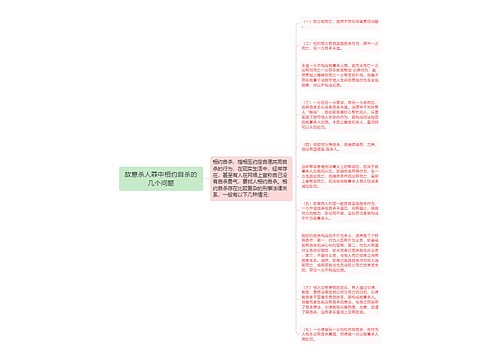1.表示说话时正在进行的动作
常和now 连用,有时用一个look、listen ,来表now 这一时间概念。
.Look! A train is coming .看,火车来了。
.Listen! He is playing the piano.听,他在弹琴。
2.表示现阶段正在进行的动作
但不一定是说话时正在进行。常和at present ,this week ,these days…等时间状语连用。.What lesson are you studying this week?你们本周学哪一课了?(说话时并不在学)
3.现在进行时有时可用来表示一个在最近按计划或安排要进行的动作
即是说可以用来代替将来时,但此时,一般要与表示将来时的时间状语连用,而且仅限于少量动词。如:go, come, leave, start, arrive, return . sleep
.Are you going to Tianjin tomorrow? 你明天去天津吗?
. many of you are coming to the party next week? 你们有多少人下周要来参加晚会?
1.be going to+ 动词原形~
对于将要发生的事,或打算、计划、决定要做的事情时,皆以be going to + 动词原形的句型来表示。
因此此句型有be动词,所以是否用am, is, are ,决定于主语。
1.肯定句:主语+be (is, am, are) going to +动词原形
going to play football next Sunday.
◇He is going to travel around the world. 他计划周游世界。
◇They are going to meet outside the school gate. 他们打算在校门口见面。
◇It is going to rain. 要下雨了。
2.否定句:主语+be (am, are, is) not going to +动词原形
not going to have any classes next week. 下周我们不上课。
◇I’m not going to be a teacher. 我不打算当老师。
◇He isn’t going to see his brother tomorrow. 他明天不准备去看他哥哥。
3.疑问句:Be (Am, Is, Are) +主语+ going to + 动词原形
◇Are you going to be a doctor when you grow up? 你长大了,打算当一名医生吗? , I am. 是的,我打算当。
以今天为起点的所有将来时间,如:
this afternoon / this evening = tonight / tomorrow/
tomorrow morning / afternoon / evening ,
the day after tomorrow / next week ,
next Wednesday / next month,
next September / next year.
★ ―be going to + 动词原形‖ 表示计划、打算、将来发生的动作,常和this afternoon (今天下午),this evening = tonight (今晚),tomorrow (明天),tomorrow morning (afternoon ,
evening ) (明早,午,晚),the day after tomorrow(后天),next Sunday (下个星期天), next week (下周), next month (下个月), next year (明年)等的时间状语连用,前不加任何介词。另外,动作性动词go ,come 和leave 等的现在进行时表示一般将来时动作。
1.比较级:句子表示两者之间的比较时用比较级,其标志词是than, much, a little , even和still等。
e.g. ① Her hair is much longer than mine. 她的头发比我的长多了。
② I’m a little older than you. 我比你大一点儿。
2.:句子表示三者或多者的比较时用级,其标志词是表示范围的in…或of …词短语。在句子中,形容词级前必须加the。
e.g. ① The boy is the tallest in our class. 这个男孩是我们班的。
② is the biggest, the sun, the moon or the earth?
3.原级:句中只有一者时用原级,其标志词是very, so, too, quite等。
e.g. His handwriting is very good.他的书法很好。 (一个人不作比较。)★ 形容词比较级和级的构成:
1.一般在原级后加er 构成比较级,加est构成级。
e.g. small smallersmallest
2.以不发音的字母e 结尾的形容词,直接加r 或st 构成比较级和级。
3.以+y 结尾的形容词,变y为i ,再加er 或est, 构成比较级和级。 e.g. busy busierbusiest
4.在中,末尾只有一个辅音字母的形容词,要先双写这个辅音字母,再加er或est, 构成比较级和级。
5.个别形容词的比较级和级是不规则变化,需个别记忆。
e.g. good (well)betterbest
bad (badly, ill) worseworst
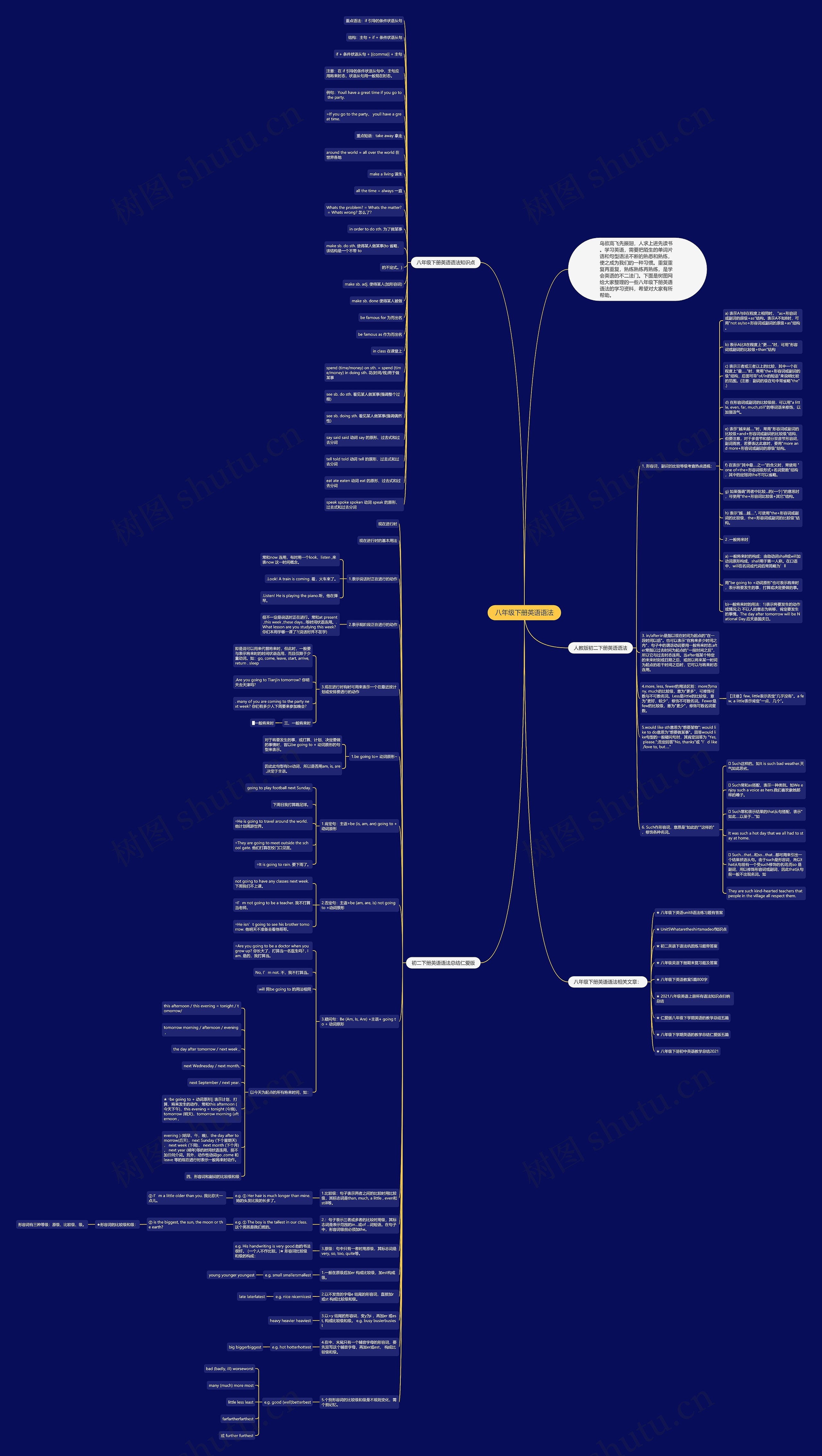
 U580391759
U580391759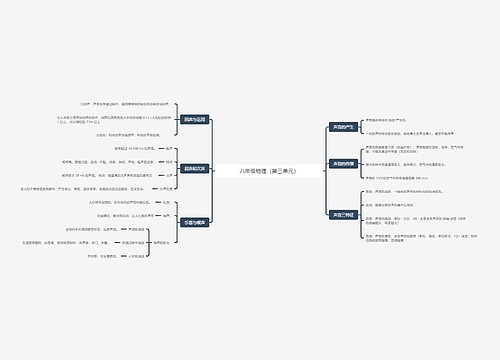
 U580391759
U580391759